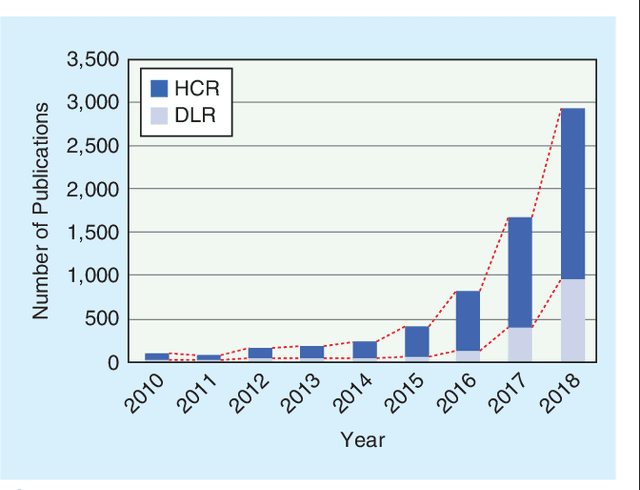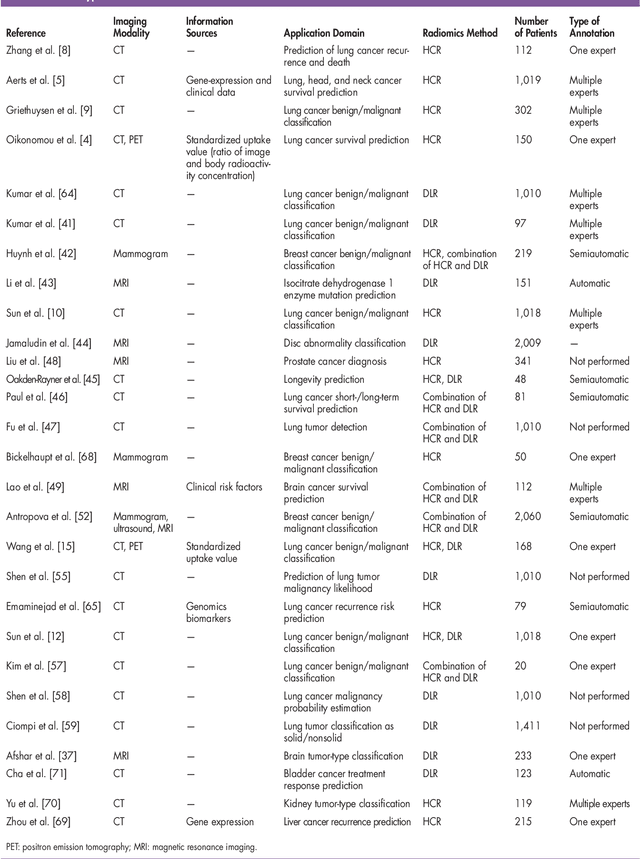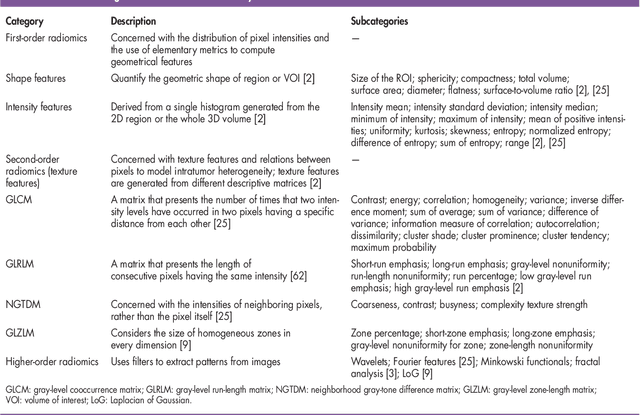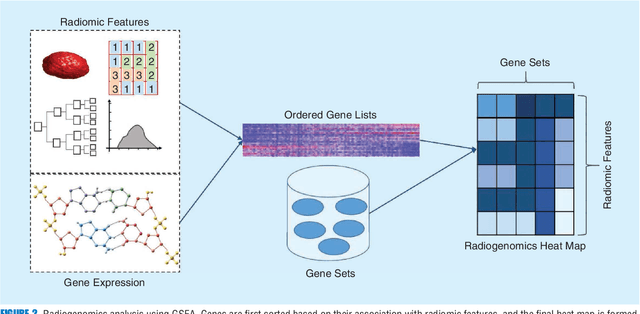From Hand-Crafted to Deep Learning-based Cancer Radiomics: Challenges and Opportunities
Paper and Code
Aug 27, 2018



Recent advancements in signal processing and machine learning coupled with developments of electronic medical record keeping in hospitals and the availability of extensive set of medical images through internal/external communication systems, have resulted in a recent surge of significant interest in "Radiomics". Radiomics is an emerging and relatively new research field, which refers to extracting semi-quantitative and/or quantitative features from medical images with the goal of developing predictive and/or prognostic models, and is expected to become a critical component for integration of image-derived information for personalized treatment in the near future. The conventional Radiomics workflow is typically based on extracting pre-designed features (also referred to as hand-crafted or engineered features) from a segmented region of interest. Nevertheless, recent advancements in deep learning have caused trends towards deep learning-based Radiomics (also referred to as discovery Radiomics). Capitalizing on the advantageous of these two approaches, there are also hybrid solutions developed to exploit the potentials of multiple data sources. Considering the variety of approaches to Radiomics, further improvements require a comprehensive and integrated sketch, which is the goal of this article. This manuscript provides a unique interdisciplinary perspective on Radiomics by discussing state-of-the-art signal processing solutions in the context of cancer Radiomics.
 Add to Chrome
Add to Chrome Add to Firefox
Add to Firefox Add to Edge
Add to Edge